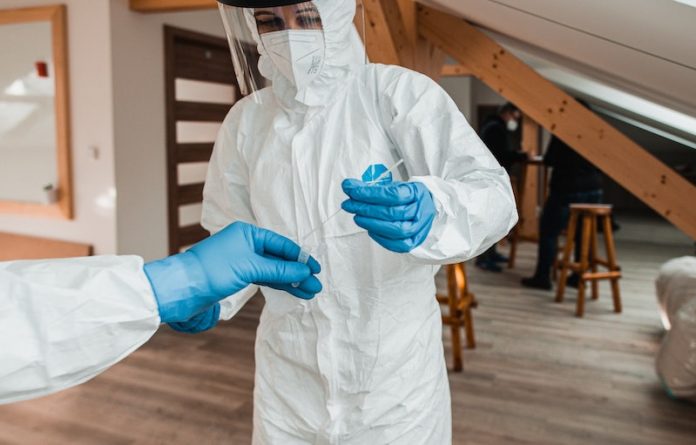
Scientists from Goethe University Frankfurt am Main found the efficacy of antibodies against omicron variants BA.1 and BA.2 declines quickly.
The research is published in eBioMedicine and was conducted by Marek Widera et al.
The omicron variant of the SARS-CoV-2 virus was first detected in South Africa in November 2021.
The high level of infectiousness of the virus and its ability to quickly spawn additional variants has also been observed in Germany:
Since January 2022 the omicron variant, BA.1 has dominated here, followed in subsequent months by the variant BA.2.
In the meantime, the virus has mutated further, and since June the variants BA.4 and BA.5 have superseded their predecessors.
This poses major challenges for the immune system of the human body: antibodies formed in the course of a SARS-CoV-2 infection and attach themselves to the surface structures of the virus, thus preventing it from penetrating human cells.
In the study, the team examined how long the antibodies present in the blood after vaccination or recovery from an infection were still able to neutralize the virus variants omicron BA.1 and BA.2.
They collected blood samples from people who had been vaccinated twice or three times (booster shot), placed the liquid blood component (blood serum), which contains antibodies, together with SARS-CoV-2 viruses on cultivated cells, and observed how many of the cells became infected.
Furthermore, in each case, they ascertained the number of antibodies in the samples that recognized the spike protein.
The result: six months after the second vaccination, the tested sera practically had no neutralizing effect on the omicron variants BA.1 and BA.2.
The effect of a booster vaccination declined rapidly: although the sera still provided very good protection shortly after the booster vaccination, three months later the protective effect was merely very weak, with the effect that the tested sera were no longer capable of neutralizing the two virus variants.
Because the antibodies have a significantly lower ability to recognize newer virus variants, a lower level of antibodies is then no longer sufficient to neutralize the virus variants and prevent an infection of the cells in cell culture.
These results are particularly problematic for the use of monoclonal antibodies, which are administered to patients with a compromised immune system as a precautionary measure, for example.
If you care about COVID, please read studies about the cause of inflammation and clotting in severe COVID-19, and this plant extract may help treat COVID-19.
For more information about COVID, please see recent studies about drug duo that may cure COVID-19 , and results showing health care workers change their minds on COVID vaccinations.
Copyright © 2022 Knowridge Science Report. All rights reserved.



